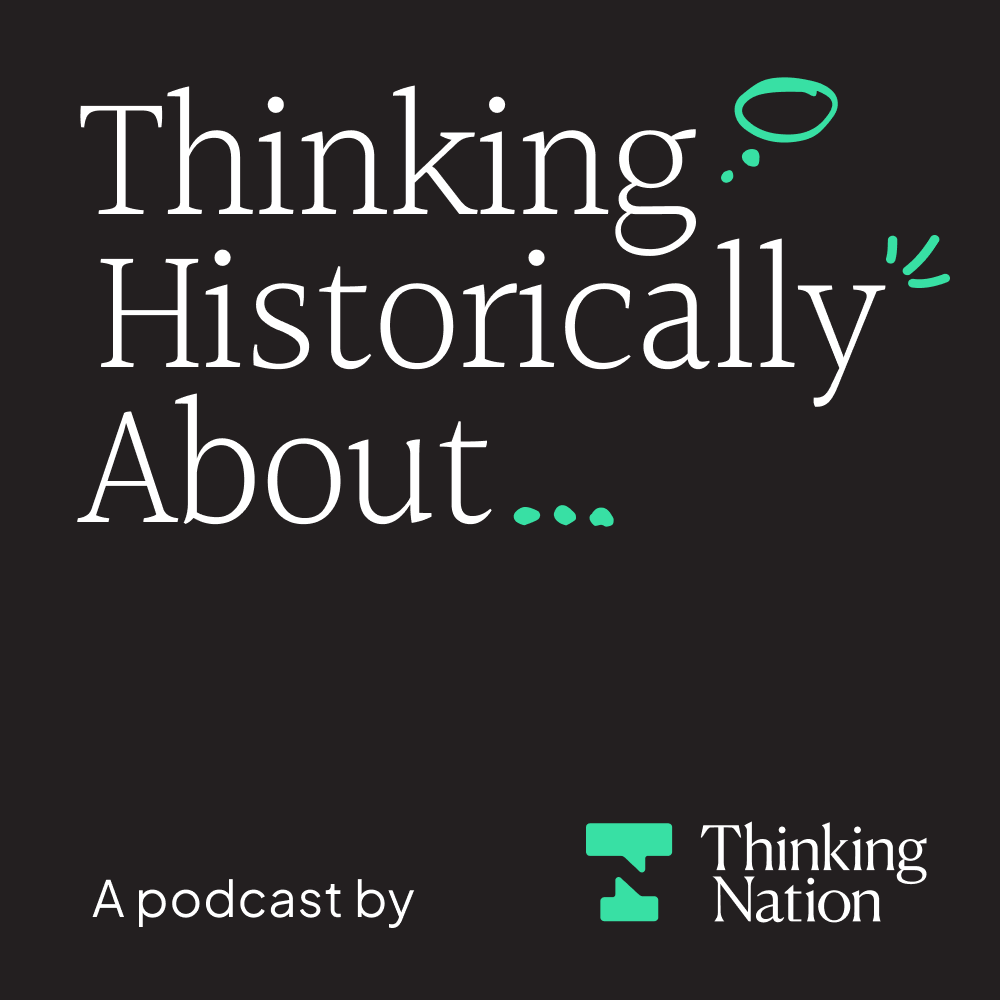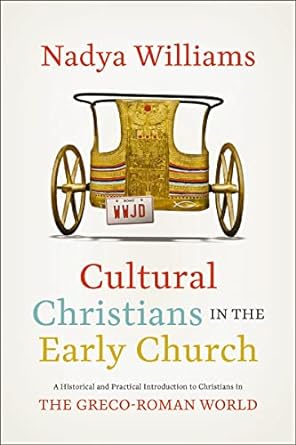Back in September, we announced our new podcast, “Thinking Historically About.” Since then, we’ve released one episode a month featuring an interview with a historian. We discuss a particular Curated Research Paper that students engage with in our curriculum. In all of these instances, the interviewed historian consulted on the actual CRP, ensuring that it was aligned to scholarship and appropriately provided opportunities for students to analyze the questions in the same ways that scholars do. For a list of historians who have consulted on our curriculum, head to our website.

Next month, we plan to launch a parallel version to the podcast, where we think historically about the current state of education. We will primarily do this by bringing in key leaders and thinkers to discuss the findings and implications of our recently released white paper, courtesy of Education Week. We hope that our podcast continues to be a place for people to be thinking historically about both past and present issues.
For now, I want to highlight some of the episodes we released in the final months of 2023, and provide a quick summary of our January episode that was released today– an interview with historian John Fea.
In September, we released our inaugural episode with Nadya Williams, a scholar of Ancient Rome and Greece. In that first episode, Dr. Williams contextualized the evolution of citizenship in Ancient Rome for us. Students who engage with our resources are asked to evaluate how citizenship developed over time in Ancient Rome, and Dr. Williams gave us key insights into the types of primary sources that could be helpful to understanding everyday Romans during the age of the Roman Republic.
In October, we interviewed Dr. H. Paul Thompson, Jr., a scholar of temperance movements and 19th and 20th century Black American history. Dr. Thompson provoked deep questions around how we would frame our own exploration into how the New Deal impacted Black Americans. In that episode, we talked a little more at length about historical thinking more generally, giving listeners a helpful methodology for exploring the topic at hand. Dr. Thompson also reminded us about how important primary sources are to the historian’s job.

Then, in November, we coupled an additional interview with the release of Nadya Williams’ first book: Cultural Christians in the Early Church. In this interview, Dr. Williams helps us better understand the similarities and differences with the two most known Greek city-states: Athens and Sparta. As she did in the first interview, Dr. Williams really pushed us to think more broadly and inclusively in our historical analysis. She also reminded us of the importance of sourcing, that is knowing the background information behind a source in order to better evaluate and analyze it.
Our last episode of 2023 was an interview with Pearl Young, a historian of the American South with particular emphasis on women and gender in the 19th century. In that episode, Dr. Young took on the role of both scholar and teacher, thinking strategically about how to best guide students through the Curated Research Paper that asked students to compare the experiences of women on the homefront during the Civil War. Her guidance in the pedagogical, as well as scholarly aspects, will hopefully help future students think more deeply about the subject when they engage with that unit of our curriculum.
Lastly, in our first episode of 2024, released today, we interview John Fea, a historian of Colonial America and the early republic era. Dr. Fea helps us to think historically about the ideas of Thomas Jefferson and Alexander Hamilton and how their ideas shaped the founders’ vision for government. Dr. Fea really pushed us to think historically in order to best contextualize that particular time and place in order to best understand what shaped their views, and how their views shaped others.
We are excited to continue our podcast in 2024, and pushing the topics for what we are thinking historically about. I’m looking forward to interviewing others on the state of social studies education and what we can do about it. Stay tuned!